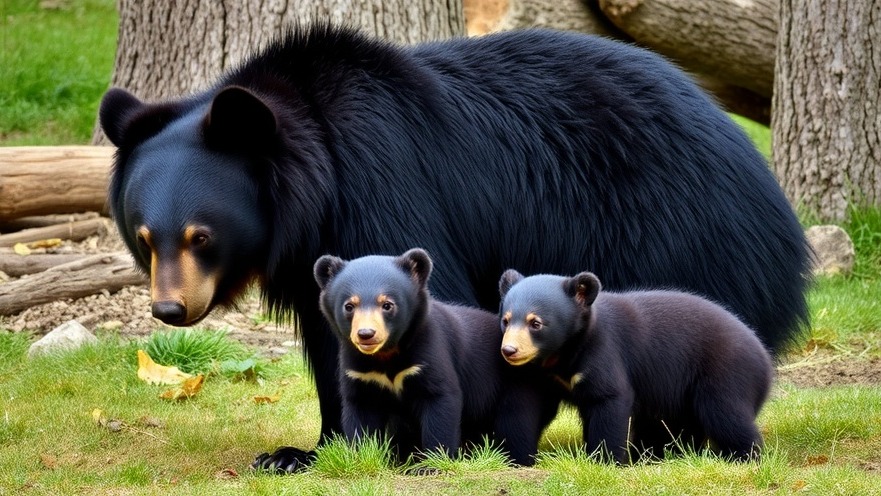
The Unexpected Spotlight on Nature’s Bandits
Gatlinburg, tucked away in the rolling hills of Tennessee, is known not only for its stunning views and thrilling attractions but also for its rich wildlife. Recently, the town became the backdrop for an amusing interaction between human visitors and its furry residents. A video captured on August 29 went viral after showing a mother black bear and her two cubs engaging in what can only be described as a classic heist – stealing a cooler from the bed of a truck belonging to the Schmidt family. This incident quickly turned into a local sensation, sparking both laughter and concern.
Why Bears are Drawn to Human Food
The black bear, a common sight in the Great Smoky Mountains, typically forages on a diet rich in berries, fruit, nuts, and small animals. However, they have a notorious reputation for scavenging human food when they can. As fall approaches, these bears become increasingly active as they prepare for hibernation, driven by the instinct to bulk up. The cooler containing food, brought by the Schmidt family, was simply too tempting to resist. “We saw a mother bear with her two cubs a couple of miles down the road as we were driving in,” remarked Kari Schmidt. This illustrates the growing necessity for tourists to secure their goods as bears hone in on food sources in the ever-busy environment of Gatlinburg.
Understanding Human-Bear Interactions in Gatlinburg
As charming as these encounters may seem, they highlight a critical need for awareness regarding black bear safety. Following the cooler snatching incident, Gatlinburg officials have reminded residents and tourists alike to minimize food attractants—such as pumpkins, corn, and trash. “These foods can increase the risk of encounters between bears and humans, which can be dangerous for both,” says a spokesperson for the City of Gatlinburg. Educating the public on proper safety measures is essential for preserving both human and bear safety.
Steps to Take When Encountering a Black Bear
In the case of a bear sighting, it's essential to follow a set of recommended guidelines to ensure everyone's safety. The website BearWise.org advises never approaching a bear and instead backing away slowly if encountered. If a bear approaches, standing your ground and making yourself appear larger can help deter it. In the unlikely event of a charge, using bear spray is advised as a preventative measure. These safety protocols are crucial, especially in areas where human activity meets natural habitats.
How This Incident Reflects Larger Issues
While this bear's escapade delighted many, it also touches upon broader issues regarding wildlife conservation and urban development. As cities expand and more people flock to nature for recreation, wildlife, particularly species like the black bear, faces increasing pressure. Encounters like these can lead to a cycle of bears becoming increasingly reliant on human food sources, which can backfire negatively for the species' health and safety.
Connecting with Nature Through Humor
Despite the seriousness of wildlife preservation, there’s a lighter side reflecting humanity’s connection with nature. The Schmidt family's encounter has brought laughter and a sense of community, illustrating nature’s unpredictability. These moments remind us that while we may be the visitors in their territory, wildlife continues to amaze us—sometimes in the most unexpected of ways!
Final Thoughts: Learning from the Wild
As Gatlinburg prepares for the autumn months, both residents and visitors would benefit from understanding the importance of coexisting peacefully with its wild inhabitants. A engaged public can encourage safety practices that benefit both people and bears alike. Next time you’re in the area, keep your goods secured and your eyes peeled—you never know when you might witness a bear bandit at work!
For those visiting Gatlinburg, staying updated on local wildlife safety measures can enhance your experience and ensure that both humans and bears can thrive in this breathtaking shared environment.
 Add Element
Add Element  Add Row
Add Row 



Write A Comment